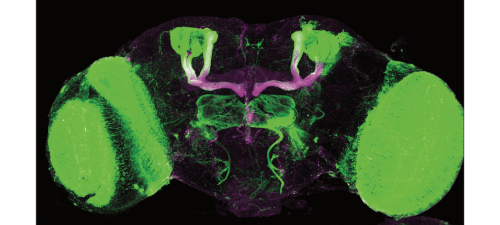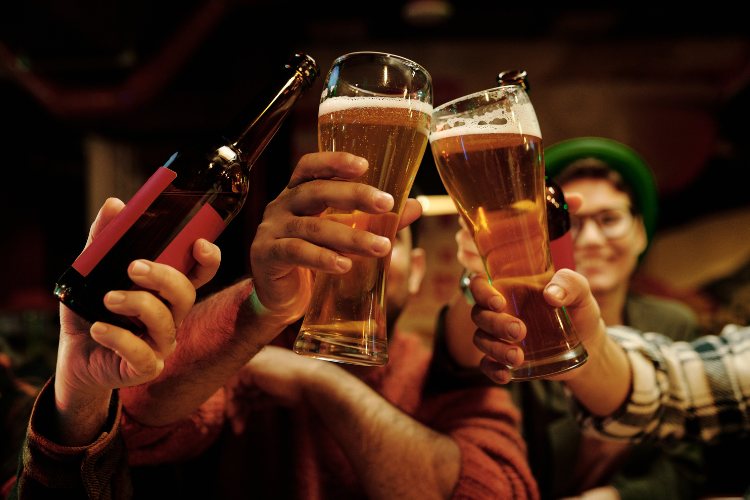By Renata Hill, Moodfuel
Study identifies brain signals and neurons involved in alcohol-induced insomnia, a frequent issue for those with alcohol use disorder
Alcohol use disorder (AUD) affects ten percent of Americans ages 12 and older. One of the biggest challenges for people in recovery from misusing alcohol is persistent and serious insomnia, including difficulties falling asleep and staying asleep. To compound the problem, insomnia can remain even after months of sobriety, increasing the risk of relapse. Plus, treatment is difficult because processes in the brain influenced by alcohol remain mysterious.
Now, research in fruit flies has identified specific brain signals and groups of brain cells involved in alcohol-induced insomnia. The researchers noticed that alcohol affected fruit flies much like it affects humans. When flies received a high dose of alcohol, they took longer to fall asleep and were more likely to wake during the night, even several days after the alcohol left their system.
This work could ultimately lead to targeted treatments for alcohol-related sleep loss, helping people to recover from AUD.
Maggie Chvilicek, a graduate researcher in neuroscience at the University of Utah and lead author of the study, said, "We've found that alcohol's effects on sleep are tied to a specific type of brain cell. This is a new discovery in the field."
The study identified lack of acetylcholine, a brain signal, as a key player in alcohol's negative sleep impacts. When researchers decreased acetylcholine signaling, even small amounts of alcohol caused long-lasting insomnia. Then, the team used genetic tools to focus on a specific group of acetylcholine-producing neurons. The neurons are found in an area of the fly brain that handles learning and memory, similar to the human hippocampus.
Adrian Rothenfluh, PhD, associate professor of psychiatry at Huntsman Mental Health Institute and a member of the study team, said in a press release that his lab will investigate further. "We've repeatedly shown that the same genes regulate alcohol-induced behavior in both flies and humans," he said. "We're now in a great position to identify genetic mechanisms affecting alcohol-induced insomnia."

The researchers hope their work ultimately leads to more effective treatments for people in withdrawal. Most sleep medicines act on a broad swath of cells throughout the brain, which increases the risk of addiction and unhealthy side effects.
“By identifying a much smaller, more discrete population of cells,” Chvilicek said, “we can theoretically develop much more targeted interventions that really focus on the problem that we’re trying to address.”


